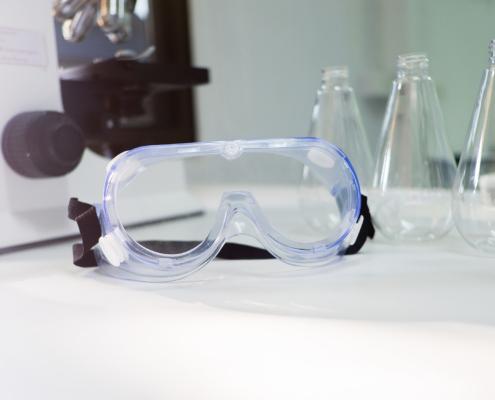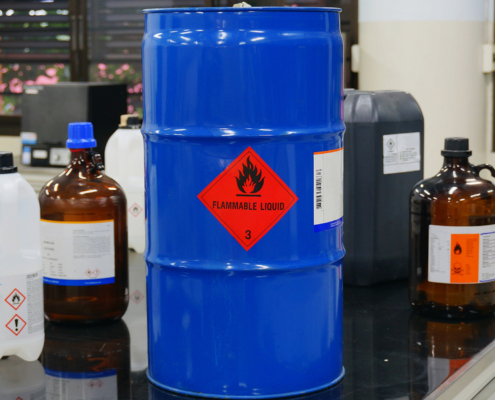
Keeping Your Business Safe: Tips for Storing Highly Flammable Liquids
Keeping your business safe and compliant with regulations is essential for any company handling highly flammable liquids. To avoid costly fines, damage to property, or worse, follow these tips and tricks for proper storage that meets safety requirements and keeps your business running smoothly.
What Are Highly Flammable Liquids?
Flammable liquids such as gasoline, diesel fuel, alcohol, and acetone are a very common hazard in many workplaces and must be handled with caution. It is essential to know how to identify flammability from the label on the container and how to handle its contents, or what to do if you are unsure.
What Are the Dangers of Flammable Liquids?
Flammable liquids have a flash point lower than 100 degrees Fahrenheit, making them easily ignite when exposed to an open flame or spark. In addition, they can create toxic fumes if they come into contact with air, making consistent storage a significant requirement.
Requirement for Storing These Chemicals
Highly flammable liquids must all be stored in fire-resistant containers to prevent accidental ignition. The container must also have appropriate labeling to indicate the material stored inside it, as well as relevant safety information such as flashpoint, boiling point, and vapor pressure.
Additionally, these materials must be kept away from sources of ignition. This includes not only liquids, but also combustible dusts and fibers. Maintain a distance of at least 20 feet away from any heat or sparks, including electrical equipment, cooking appliances, and welding equipment.
Do you regularly use highly flammable liquids? Axiom Products offers chemical measuring containers that are ready-to-use and can be easily transported and stored. These containers make it easy to transport and store chemicals on the go.
How to Safely Store Highly Flammable Liquids
Tip 1: Properly Measure Flammable Chemicals for Storage
Measuring products like glass cylinders, graduated cylinders, and thermometers determine liquid levels. Ensuring that containers are not over- or under-filled prevents spills and other workplace accidents.
Tip 2: Regularly Check Containers and Hoses
Once the liquids have been accurately measured, it is important to store them in containers with extra-long hoses. All hoses should be checked periodically for any signs of wear or damage and replaced as needed. Highly combustible materials must also be kept away from sources of heat or sparks, such as electrical equipment or open flames.
Tip 3: Prevention Is Key
Regular maintenance checks will ensure that they are functioning properly and meeting all safety requirements. Furthermore, proper labeling should clearly identify contents, and a designated storage area should be established away from other working areas within the business. Finally, it’s essential to make sure that workers are provided with adequate training, including understanding how to use safety equipment such as fire extinguishers and spill containment materials if an accident does occur.
What if You Aren’t Sure It’s a Highly Flammable Liquid?
If you are unsure whether a chemical is flammable or not, check the container label for any relevant safety information, such as as a flame symbol or an exclamation mark, to indicate their combustibility. Additionally, these labels may indicate the type of material inside and any special precautions that must be taken when handling them.
It is always important to exercise caution when handling any potentially flammable substances. But if you are ever unsure about how to do so, consult with your supervisor or local fire department for advice on proper storage and procedures.
Axiom Products Can Help You Properly Store Highly Flammable Liquids
Storing highly flammable liquids requires careful consideration and preventive measures in order to reduce risks associated with accidental spills or fires. Axiom’s measuring products can help you store and keep track of accurate liquid levels in containers. By taking extra caution when dealing with these hazardous substances, you can keep your business compliant with fire regulations and employees protected from workplace hazards.






